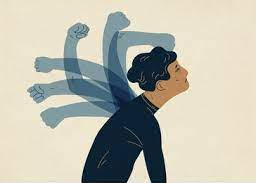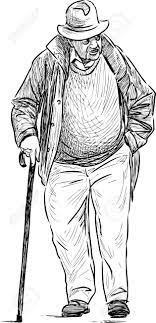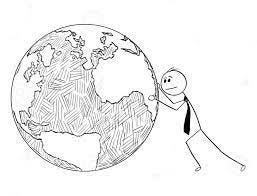Collective Guilt vs Responsibility
As many who have grown up culturally Jewish can attest, the number of Holocaust films and stories that one is exposed to is rather large. And while they are no doubt important—especially so, I’d argue, for non-Jews—After a while, one may start to develop a sort of ‘emotional immunity’ as a way of coping. After all, you can’t continue to break down in tears over every horrific story you hear or you’ll never stop.
So imagine my surprise when, while visiting the Jewish Quarter in Prague, I had stumbled across a museum displaying art by Jewish children who have perished in the Holocaust and had quickly turned to uncontrollable sobbing. Turns out, I was not immune after all.
This was many years ago, I was young, and excited to explore Europe on my first solo trip. But no matter how carefully I had read the guidebooks, there’s something I did not anticipate. I did not expect that when travelling through particular parts of Europe, whenever I’d come across someone old enough to have been alive in the 30s and 40s, I couldn’t help but wonder: Were they involved? Were they complicit somehow? Did they even care?
To this day, Germany takes on a certain collective responsibility as a nation (some nations do not) for their role in the Holocaust. They ensure that the Holocaust and the Nazi era are taught extensively in schools, and that students visits concentration camps and Holocaust museums. They strive to ensure that the past is not hidden—and while that certainly will not bring back those who were murdered during the Nazi regime, the hope is that the lessons will prevent history from repeating.
There is the subject of guilt though, and even famed psychoanalyst Carl Jung had written about the psychological phenomenon of collective guilt. He wrote that collective guilt was “for psychologists a fact, and it will be one of the most important tasks of therapy to bring the Germans to recognize this guilt.” This was in 1945 and the Germans he was speaking of were alive and present during the atrocities.
In the aftermath of the war, the Allied forces staged publicity campaigns around shame and guilt—with posters that depicted Nazi concentration camps, stating: “These Atrocities: Your Fault!”
But there was plenty of guilt to go around then—whether due to complacency and fear, or cruelty and hate. Many had indeed committed terrible war crimes, but many more merely allowed them to happen on their watch. An acknowledgement of guilt was necessary to move forward, to build a more morally just society. The collective guilt was arguably justified.
But, I wonder, what personal responsibility do those who weren’t even alive then have?
It’s one thing to ensure that this very dark history—and I cannot overstate how dark it is—is taught, shared, studied, and continuously recognized. We need to know and learn from history so that we can avoid making it our present. But, can I really hold responsible a 20-year-old who had perhaps been nothing but kind in their own life? Are they guilty of the sins of their nation?
What if their grandparent was a Nazi, what then? Do they share in the guilt of their family?
Further, just to muddy the waters a bit, what if the Nazi grandparent had gained wealth through immoral and abhorrent means, which was then eventually passed down to the grandchild? What then? Does the 20-year-old become complicit? What if it wasn’t their grandfather, but great great great great great…great grandfather, does that change things? How do we establish a timeline of guilt?
I know that in some ways, this is not an easy question to answer. What I try to do, however, is to look at people as individuals, responsible for their own actions. How can I judge someone for something they cannot control? After all, unless there’s something I’m unaware of, it is impossible for any of us to choose our parents—and likewise our race, nationality, sex, and many other such immutable characteristics.
We may be born into wealth or poverty, to parents who are either kind or cruel. If one is born to a parent who is discovered to be a serial killer, is the child then responsible for the brutal crimes of their parent? How much of a jail sentence should they get?
This seems absurd.
The most fair answer seems to be rather basic: Judge each person on their own character. They get the life they get, the rest is up to them—to navigate the best they can within the opportunities they have.
The idea of collective guilt seems to betray the individual, and both judges and punishes them based on something that they cannot possibly control.
Even if my hypothetical 20-year-old had grown up in a house made of gold and got to go to all the best schools because of the horrible actions of their great grandfather or perhaps because of an unjust system in the past, they had no choice in the matter…of who to be born to, or as. What they do next, that’s what I get to judge them on.
It’s one thing to feel empathy and sadness over horrific wrong-doings in the past such as genocides or slavery, but for an individual born many years later, to bear the collective guilt of it all, that’s something very different.
Collective Responsibility
What responsibility, then, do we hold as citizens of a country with a checkered history (good luck finding one that doesn’t have one of those)? And, what’s our duty as a society in general?
Just because we were not part of the atrocities of the past, doesn’t mean that we are above them. It doesn’t mean that we can’t do terrible harm, too. So it becomes our collective responsibility to learn from that history continuously, acknowledge and talk about what may have led to things such as the Holocaust, or genocides like the Assyrian and Armenian ones which rarely get any attention. We should talk about the injustice of Japanese internment camps and how we can do better. We need to understand why slavery was justifiable to so many and how discriminative policies like segregation and red lining had adversely impacted entire generations. Our responsibility isn’t to feel guilty. Our responsibility is to ensure that we don’t repeat the horrors of the past again.
We can’t just vilify the people who have done these things in the past and view ourselves as somehow different from them. We need to actively recognize the circumstances that allowed such horrors and injustices to happen and ensure that we don’t make the same mistakes.
We need to understand that evil does not come to us obviously dressed up as evil. Evil can be charming and tempting. Evil can even look like ‘good’ sometimes. We are not immune. We need to know what behaviors to watch out for—things like dehumanization, the taking away of property and rights, unjust laws or their application, segregation, concentrations of power, and the stripping away of freedoms. We need to know which lines not to cross—and how to stop what is immoral.
It's not enough to point at the past and say: "These people were evil, we know better now." I imagine that those who came before us thought that too. But, what reason do we have to believe that the things that have filled history books for centuries won’t happen again? What have we learned that will prevent that from happening? What systems are in place to safeguard? How have we changed? And if we haven’t, aren't we doomed to repeat?
That is our collective responsibility. Not guilt.
And finally, if one believes that the notion of collective guilt is acceptable and necessary, then are they not ultimately siding with the same people who hold, to this day, that all generations of Jews are collectively guilty for allegedly killing Jesus? I don’t know about you, but I don’t like where that rabbit-hole leads.
Thank you for keeping me company. If you want to support this Substack, please share, like, comment, and subscribe. Got ideas for future posts? Email me.







This is really elegantly stated - it feels like a mine field best avoided, but to do that we need another framework.
We have an f-word rule in my house. My impulsive 10-year-old will get surprised and yell 'Fuck!' I'm ok with that, as long as he understands the consequences of saying it in public. As soon as he trots out the word 'Fair,' though, we've got problems. At least 90% of our public and political discourse today boils down to "but it's not fair!"
The only correct answer is - "You're right. It's not fair. Never has been, never will be." Fair is a subjective concept. What seems fair to me, won't be fair to you.
If I could suggest a way out of the very real collective guilt dilemma you describe, it would be to decide collectively what future we want together, and then (only then) acknowledge the past, accept the present, and talk about ways to get there. Guilt is corrosive, and we have really important and urgent work to do.
I think one should avoid collective guild by taking responsibility. In this case, the collective responsibility of living up to the mistakes, horrors, errors and intentional bad behavior of your ancestors. You have this responsibility by virtue of having been born, which you had no choice about, so the burden may seem unfair, but it is unavoidable. In short, leave the world a better place by struggling and sacrificing and trying to avoid the mistakes of the past, this is the best way to overcome the burden.